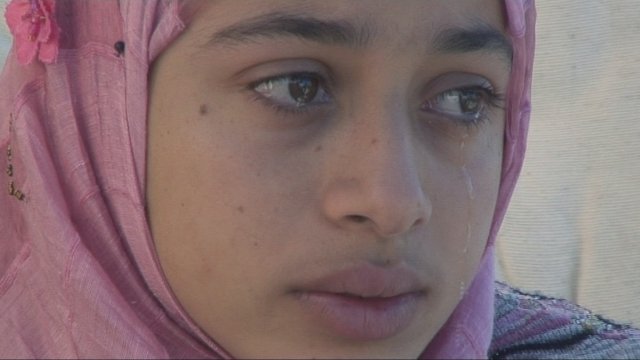Official Description (Toronto)
Disturbing, powerful and emotionally devastating, Tears of Gaza is less a conventional documentary than a record – presented with minimal gloss – of the 2008 to 2009 bombing of Gaza by the Israeli military. Photographed by several Palestinian cameramen both during and after the offensive, this powerful film by director Vibeke Løkkeberg focuses on the impact of the attacks on the civilian population.
The film shuttles between the actual bombings and the aftermath on the streets and in the hospitals. The footage of the bombs landing is indelible and horrifying, but it is on par with much of the explicit imagery on hand. White phosphorous bombs rain over families and children, leaving bodies too charred to be identified. The footage here is extremely graphic and includes children’s bodies being pulled from ruins. Recounting the horrors she has witnessed, one young girl collapses and sinks out of the frame.
Years of economic embargo have left the area deprived of resources and have strained an already impoverished infrastructure. The wounded are carried to hospital for lack of ambulances, and an absence of fire trucks leaves home owners to put out fires on their own. What’s immediately apparent is that decades of military activity have made the population angry, nihilistic and vengeful. As one young boy says, “Even if they give us the world, we will not forget.” Løkkeberg contrasts these scenes with footage of bachelor parties, weddings and visits to the beach – social activities that epitomize daily life in Gaza during more peaceful times.?
Tears of Gaza makes no overriding speeches or analyses.
The situation leading up to the incursion is never mentioned. While this strategy may antagonize some, it’s a useful method for highlighting the effects of the violence on the civilian population. Similar events certainly occurred in Dresden, Tokyo, Baghdad and Sarajevo, but of course Gaza isn’t those places. Tears of Gaza demands that we examine the costs of war on a civilian populace. The result is horrifying, gut-wrenching and unforgettable.
Steve Gravestock


